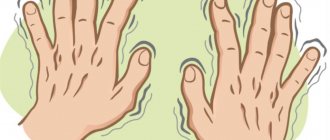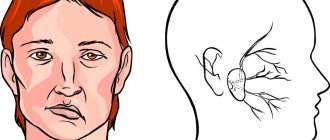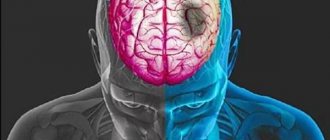- 22 JAN 17
- Vasilyeva Olga
- Articles
Author: Vasilyeva O.B.
In this article, you will learn about the psychological mechanisms behind trembling and how to cope with it.
Tremor that occurs with excitement is a normal physiological reaction of the body to stress. Almost every person has at least once felt trembling in stressful situations: during exams, in driving school or during public speaking.
But some people experience tremors more often and more severely than others. When trembling in the hands becomes noticeable, it begins to cause inconvenience: it is impossible to calmly eat soup, it is difficult to write legibly, and change at the cash register tends to fall on the floor. Tremor becomes a disaster for those whose work involves small precise movements: for shooting athletes, surgeons and dentists. Some public figures, teachers and actors struggle with trembling in front of an audience.
It happens that shaking in the hands is accompanied by a shaking neck and head. Shaky legs bother many novice drivers, and a shaky voice bothers lecturers.
In my first year at the institute, I met Veronica. She was a slender, pretty, slightly shy girl. Every time she answered at the board, her hands were noticeably trembling with excitement. And during the exams, the trembling intensified and covered the whole body.
During one of the subjects, we were given the task of approaching a stranger on the street and asking him the question “How to get to the Kremlin?” It so happened that we went to complete the task together with Veronica. Already going outside, Veronica began to shake. And when we chose the “candidate” to whom we would ask our question, my head began to visibly shake. Despite this, Veronica completed the task.
On our way back, Veronica and I started talking. She told me about herself.
“I started getting tremors in my hands when I was nervous at the end of school. At first the hand trembling was almost unnoticeable. But one day a “kind” classmate laughed at his shaking hands. From then on, I tried to control my trembling. And the more I tried to control my body, the stronger the tremor became. Now, when I get nervous, my hands shake.”
We became friends with Veronica. When she went to psychotherapy, she shared her discoveries with me. What I learned from Veronica about tremor later helped many of my clients.
Main causes of tremor
If a noticeable tremor is directly related to stress , this indicates its purely psychological nature. This means there are two ways to deal with tremors. One of them gives a temporary effect - this is taking psychotropic drugs, the second gives a lasting effect - this is working with a psychologist or psychotherapist.
Very often, trembling during excitement is associated with social anxiety (social phobia).
Sometimes tremors are caused by several reasons , for example, both your genetics and a psychological reaction to stress.
another reason along with the psychological cause , then you should go to a neurologist.
The doctor will rule out a number of diseases and reactions that cause tremors. Here are some of them:
- Response to physical activity;
- Consequences of taking alcohol and drugs;
- Reaction to drugs;
- Genetic predisposition;
- Parkinson's disease;
- Consequences of traumatic brain injury, stroke or brain tumor;
- Hyperthyroidism;
- Liver or kidney failure;
- Dystonia;
- Polyneuropathy.
However, if tremor manifests itself specifically during communication, then you should consult a psychologist, even if you have determined that the cause of the tremor is a disease, a reaction to stress, or psychoactive substances.
Diagnostics
It begins with a standard history taking and analysis of the patient’s complaints. At this stage, the doctor should find out:
- How long have you been experiencing symptoms?
- Where exactly does the tremor occur?
- Is there a hereditary predisposition?
- Are there any provoking factors?
The next stage is an examination by a neurologist, where indicators such as tremor characteristics, physical picture, and the presence of visible neurological pathologies (for example, nystagmus) are determined.
Instrumental diagnostic methods are often used:
- Electromyography – used to assess the functional state of muscles.
- Electroencephalography – to assess functional parameters of the brain.
- and MRI – if brain lesions are suspected.
Depending on the diagnosis, consultation with other specialists may be required.
What to do if your hands shake when excited?
- Contact a psychologist or psychotherapist
Psychotherapy is the most reliable way to cope with tremors caused by anxiety. Psychotherapy may require a certain investment of time and money, but the results are stable.
- See a psychiatrist
Psychotherapy does not give immediate results. Therefore, if you need to quickly cope with tremor, you should consult a psychiatrist for medications. When taking medications, hand tremors during anxiety decrease or disappear, but only while taking the medications.
- Contact a neurologist
If you are not sure about the purely psychological nature of tremors, then you should make an appointment with a neurologist to rule out other causes of hand tremors during excitement.
- Find appropriate self-help methods
You can read about self-help methods at the end of the article.
Medicines for hand tremors: list of the most effective
The modern pharmacological market offers many drugs, and without special education it is quite difficult to understand this diversity. Neurology offers the following classification:
How to get rid of hand tremors on your own, without resorting to the use of pharmacology? This is only possible if the tremor is caused by anxiety, stress or alcohol abuse. If there are neurological diseases, then you will have to resort to the help of pharmacological agents in any case.
Trembling is an ancient means of communication
There is an opinion among psychologists that trembling is an ancient adaptive mechanism.
Imagine a clan of ancient people. To survive in harsh conditions, they need to stick together. After all, alone there is little chance of building a reliable shelter, getting food for yourself and driving away large predators. In order for a group of people to stick together, excitement and aggression must be controlled. We need clear signals that will make it clear what is happening to a member of the community.
For example, two men stand opposite each other, and each wants to become a leader. The fact that their hands are shaking with excitement informs everyone around them that men are extremely excited, they can barely contain themselves and their energy is about to splash out. This is a signal to others to “Move away!”
Each man mentally evaluates his strength and the strength of his opponent. One of them feels that he is stronger. Because of this, he perceives his trembling as aggression ready to manifest itself, he scares the opponent with his roar, he is preparing to fight. The other man is not sure of victory, so he perceives his trembling as a manifestation of fear, he will prefer not to get involved in a fight and will move away. Thanks to trembling, it was possible to avoid direct clashes and bloodshed.
Animals also have similar bodily signals; for example, cats’ tails twitch in stressful situations.
Antidepressants for anxiety-induced tremors
The advisability of taking antidepressants should be determined by a doctor for each individual patient. Antidepressants can be used in people with chronic alcoholism to relieve withdrawal symptoms, which are characterized by severe hand tremors. Also, while taking antidepressants, it is easier to survive difficult life moments. However, self-administration is fraught with serious consequences, since antidepressants affect the production and preservation of neurotransmitters.
Why do my hands shake when excited?
Towards graduation, Veronica went to psychotherapy. And she told me about her discoveries about the causes of trembling.
Containment
In working with a psychologist, Veronica discovered that trembling was directly related to her restraint. It turned out that without realizing it, she was holding back her indignation, manifestations of fear, her anger and rage, her delight and excitement. The only hint of suppressed emotions was trembling. Over time, Veronica realized that there was no great need to keep all her reactions to herself. Psychotherapy taught her to be more spontaneous and open. This reduced Veronica's general anxiety, reduced bodily tension and freed up a huge amount of energy in Veronica, which had previously been spent on suppressing natural reactions. Veronica began to look more relaxed and calm.
The human body reacts in certain ways to stressful events. First, the brain and adrenal glands produce stress hormones. Hormones prepare a person for active physical action, and for this purpose the pulse quickens, the muscles become toned, the pressure rises, and the breathing rate increases. This is the so-called “fight or flight” reaction, which previously helped ancient man to be stronger, faster and more agile, and therefore helped him to survive.
If a person is forced to remain motionless during the release of hormones, tension grows inside him. It is this internal tension that manifests itself in the form of trembling. Suppression takes a colossal amount of energy. Holding back the trembling leads to increased tension, which means an increase in tremors.
Trembling is more pronounced in those people whose bodies react more strongly to stress. And also for those who are not used to being emotional, but strive to be restrained and rational.
Focusing
Veronica also said that if she pays attention to her hands, she asks herself the question “Are my hands shaking?” - this leads to trembling.
It turns out that there is such a rule: if you focus your attention on any part of the body, this leads to changes in how it works. You can conduct this experiment yourself.
Go to a quiet, peaceful place. Sit comfortably. Direct your inner gaze to the big toe of your left foot. Feel how your thumb touches your index finger as it touches the floor. If you are wearing shoes, feel them with your finger. Listen to the sensations in your finger - whether it is warm or cold, whether it is relaxed or tense, whether it is comfortable in the shoe. Focus your attention on the big toe of your left foot for 3 minutes, try to keep your attention on the sensations in it. After 3 minutes, describe how your finger sensation has changed since the beginning of the experiment. Most people feel the difference.
Focusing on the sensations in the hands and thoughts about trembling leads to increased tremors. Therefore, in stressful situations, transfer your attention to other things.
Fear of making a bad impression
Veronica told me that during therapy she realized how much she wanted other people to like her. She had an image of what an ideal girl should be. Deep down, she knew that she did not fit this image. She felt that if she relaxed, everyone would laugh at her, judge her, or reject her. In the process of working with a psychologist, Veronica decided that she was not $100 to please everyone. Now she is not afraid of ridicule from strangers. And as her fear diminished, so did her tremors.
With the fear of not being liked, a person feels like a small child. It seems that only those around you know what is good and what is bad. It’s as if there are all judges and prosecutors around. In fact, the toughest accuser is on the inside. As practice shows, people think only about themselves and rarely notice others. The thought is quite unpleasant: “No one really cares about me, except the people who are very close to me.” In addition to the fact that this thought quite accurately reflects reality, it helps to be a confident person.
In psychotherapy, you can quiet the voice of your inner critic.
Vicious circle
The thought that other people will notice the trembling makes it worse. A vicious circle is formed in which this thought causes fear of making a bad impression, which leads to the release of stress hormones. Hormones trigger the body's response to stress. When the fight or flight response is suppressed, tremors occur.
False Self
While working with a psychologist, Veronica discovered that she behaves the way other people want. She considered herself sociable and non-conflict. Gradually she began to realize that she was not really what she had thought before. Veronica realized that not all people liked her. I realized that I love solitude and walks in nature. Who prefers reading a good book to a fun party. She realized that sometimes she gets angry and wants to defend her interests.
As a rule, trembling is characteristic of those people whose parents and educators achieved ideal obedience (complete inhibition of natural reactions) in a variety of ways. Some were scolded in childhood, others were beaten, others were condemned or showered with contempt, and others were stopped from speaking as punishment. As a result, they hid their natural, spontaneous part deep inside themselves. Without realizing it, they began to show the False Self, and the Natural Self was imprisoned within.
Particularly severe trembling is characteristic of people with a stormy temperament, when they hide their strength and activity. Their irrepressible energy bursts out trembling.
Psychotherapy helps to identify and neutralize the psychological mechanisms of trembling.
Alcohol abuse
Develops gradually. Severe tremor is a symptom that alcohol dependence has developed to a severe form. A distinctive feature of alcoholic tremor is the lack of clear localization. The patient may twitch voluntary muscles, the head or whole body may tremble. Symptoms are most pronounced in the morning. To get rid of the tremors, patients often take another dose of alcohol. But in the long term, this treatment only makes the tremors worse. If you find signs of alcohol tremors in relatives, you need to contact a narcologist as soon as possible. Tremor is a signal that the patient’s body is highly dependent on drinking alcoholic beverages.
The effectiveness of Teraligen against tremors of the hands and head
The main active ingredient is alimemazine tartrate. The drug belongs to the group of mild antipsychotics. Effective against tremors of the hands and head if the condition appears as a result of psychiatric spectrum disorders. The antipsychotic effect is very mild, so Teraligen is prescribed even to children from seven years of age.
The intake should be carried out incrementally, from small dosages (a quarter of a tablet) and up to two or three tablets per day. Cancellation should also be carried out “ladder”, otherwise the condition will worsen and the tremor may return with double intensity. Teraligen is a strictly prescription drug and should not be taken on its own; there is a high risk of side effects.
Features of taking Phenazepam for tremor
"Phenazepam" has bromodihydrochlorophenylbenzodiazepine as its main active ingredient. With prolonged use, it can cause drug dependence even stronger than Phenibut. Before purchasing, you should get a prescription from your doctor. Phenazepam is not sold without a prescription, as the substance is classified as psychotropic.
The drug has the following effects:
- sedative;
- hypnotic;
- muscle relaxant;
- anticonvulsant;
- amnestic.
A prescription for Phenazepam can be obtained from a doctor if the patient suffers from insomnia, nervous tics, alcohol or drug withdrawal. Also, this drug is often prescribed to patients if they have started taking antidepressants. Then the duration of use of Phenazepam should not exceed two weeks. In psychiatry, Phenazepam is prescribed as part of complex therapy to patients with hallucinations of various etiologies.
If at the initial stages of using the drug a person experiences drowsiness and positive emotions, then after about a few months (with continuous use of Phenazepam) a “rollback” occurs. The person becomes irritable and angry. If drug dependence has developed, the drug should be discontinued gradually. In some cases, it may be necessary to cover it with other tranquilizers or even antipsychotic drugs (neuroleptics). Therefore, it is better not to experiment with taking Phenazepam on your own.
The effectiveness of Phenibut
"Phenibut" has a substance called phenibut as its main active ingredient. The drug has a hypnotic effect if taken before bed and an activating effect if taken in the morning. Belongs to the group of nootropic and anxiolytic drugs. With prolonged use it can cause drug dependence. Therefore, it is not recommended to take Phenibut for tremor for a course longer than two months. This is an important condition.
Phenibut can be used as a sedative for hand tremors. But there is an important nuance: do not take the drug for longer than one month. Otherwise, there is a high risk that insomnia will develop, tremors may return, irritability and apathy will appear. These are all the consequences of abrupt withdrawal of the drug after it has been used for a long time.










